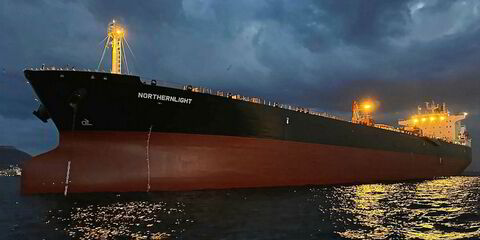The Baltic Dry Index settled at 1045 today, up 74 points from yesterday, and the highest level since August 2015 as hard commodities prices keep enjoying gains.
Gains in the capesize component of the index provided most of the strength, with the Baltic's capesize rate index gaining 14% from yesterday to reach 2303. The Baltic's timecharter average on 180,000-dwt ships reached $16,269 per day, up 15% for the day.
Among timecharters reported for the day were the Zodiac Maritime-owned, 181,000-dwt Cape Kestrel (built 2016) which went to Oldendorff at $12,250 daily for Asia-to-Brazil roundtrip in November. The Anangel-owned, 179,000-dwt Conqueror (built 2012) went to Phaethon for $25,000 per day for Atlantic Basin-to-Asia. And the Great Eastern-controlled 179,000-dwt Jag Anand (built 2011) was chartered for Australia-to-Asia at $13,700 per day.
Commodities prices rise as inflation potential increases
The surge in capesize chartering comes as commodity prices see healthy gains over the month. Chinese steel prices are running $500 per ton, up 19% from October, while European steel prices are up 10% to around $440 per ton. US steel prices are hovering at $492 per ton, up 27% from a year ago.
Arctic Securities analyst Erik Stavseth points to input prices as one reason for the gains. Iron ore prices for delivery into China sit $74 per ton, up from $57 per ton in early October. Coking coal prices are up to $135 per ton, from $55 per ton at the beginning for the year.
But "the underlying situation (is) pointing to a better demand picture," he added.
To that end, president-elect Donald Trump has pledged to increase government spending on infrastructure in the US. Those pledges of higher spending have stirred forecasts for higher inflation ahead, which benefits commodities in general.
Despite initial concerns that a Trump presidency may be bad for trade, some shipowners see the potential for greater industrial activity in the US boosting the sector.
At a recent investor conference, John Angelicoussis said, "[Trump] is going to be good for dry bulk. If you follow the election promises of more infrastructure spending, he is going to need a lot more imports."


